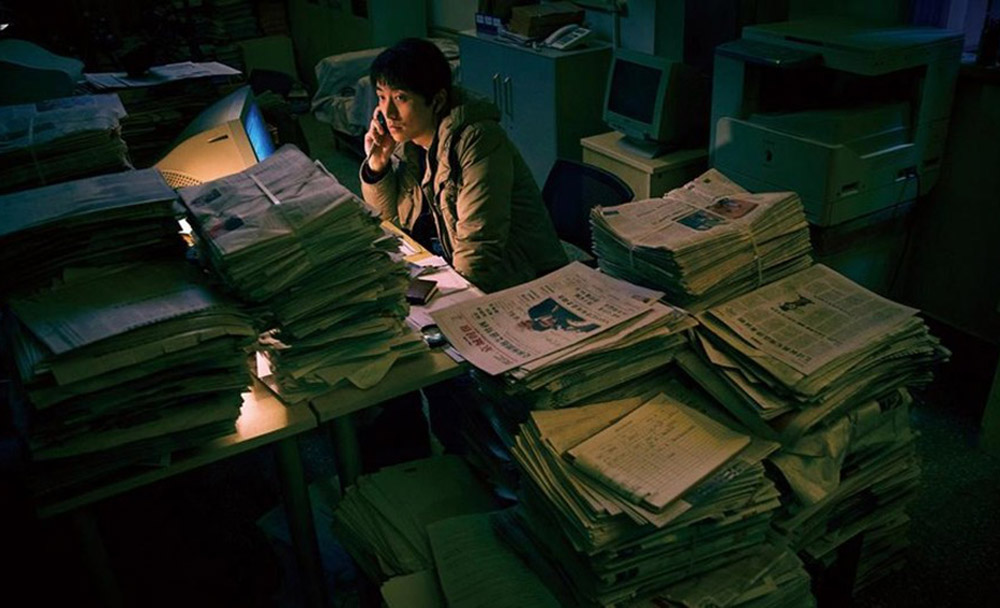There’s an old fashioned montage of a printing press in action about a quarter of the way through “The Best is Yet to Come” that’s rarity now has made it something to be cherished by anyone who’s ever been in the news business or looked forward to cracking open a newspaper in the morning. A scene that popped up so often in tales of heroic hard-charging reporters landing their big scoop in American cinema of the 1940s and ‘50s, it is both nostalgic and refreshing to see in the context of modern-day China in Jing Wang’s shamelessly sentimental yet moving feature debut, with a higher-up at the Jingcheng Times telling her interns, “Once the printing press starts, it doesn’t stop,” as a means of adding incentive for the young muckrakers to get it right.
An audience accustomed to hearing about “fake news” may need to hear this, but you take it that Han Dong (White K) does not, having already pleaded his way into the building and eager to get his first proper byline in the days just before . This wasn’t easy when his lack of a college diploma can’t even get someone to take a look at his résumé at a job fair, but he shows promise as a reporter when his due diligence leads him into the Jingcheng offices and he makes an impression once he’s there, knowing about chemicals from his old job at a factory as one of the editors is working on a story about pollution. Cut from Capraesque cloth, the idealistic Han is hardly put off by the odds against him landing a permanent position at the paper and the unpleasant picture that Wang paints of those that have, with one amusing shot of a reporter propped up at his desk with a neck brace tied to the ceiling. (The film’s sly sense of humor extends to having its benevolent executive producer Jia Zhangke show up in a cameo as a coal mine owner who pays off a mother from under the table for her son’s death.)
As might be expected, Han’s investigative work becomes a crusade when he learns of a black market for blood where citizens go for cover to hide that they have Hepatitis B, which could be disqualifying for employment if it appears on medical records, but this offers a compelling detour from the typical derring-do of chasing a story that takes him to places where he’s not wanted when the potential public health crisis that’s exposed becomes a bit of a red herring. Instead, Wang illuminates how the national preoccupation with paperwork forms its own caste system when people are evaluated strictly based on the files that are compiled on them and prior illness or inexperience is used as a means of eliminating opportunities.
When Han recognizes his own desperation to be taken seriously as a reporter in those who seek out the services of the underground doctors to hide their diagnosis, “The Best is Yet to Come” effectively tugs at the heart and is liable to make it skip a beat in its recognition of journalism’s ongoing vitality, not only in keeping up with Han’s relentless drive in its energetic pace, but in the vibrant lighting Jia’s frequent cinematographer Nelson Lik-wai Yu brings to the it. Although Wang intersperses video clips of those who lived in fear with Hepatitis B throughout the film to acknowledge the real-life reporting of Han Fu Dong that the narrative was inspired by, it’s the writer/director’s pursuit of truth in adequately capturing Han’s passion cinematically that makes it most emotional, disarmingly optimistic that good journalism can still have tremendous power and evincing the strength of a story well told when it is one itself.
“The Best is Yet to Come” will screen at the Venice Film Festival on September 10th on 11:15 am at the Sala Casino, 1:45 pm at the Sala Volpi and 4:15 pm at the Sala Casino.




